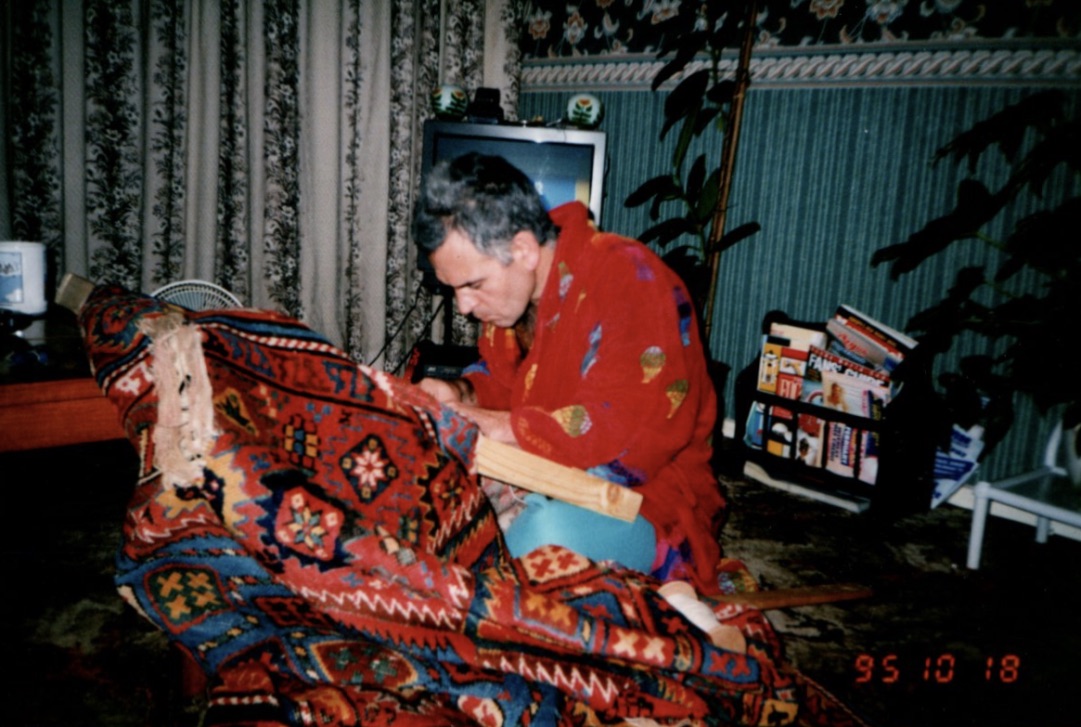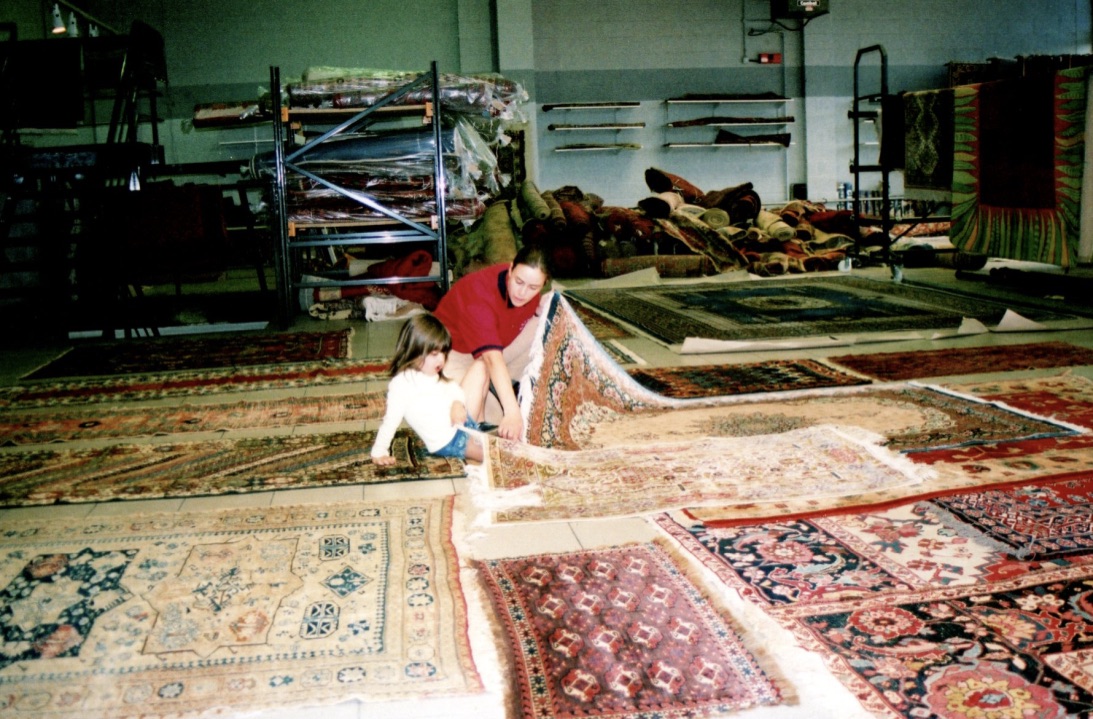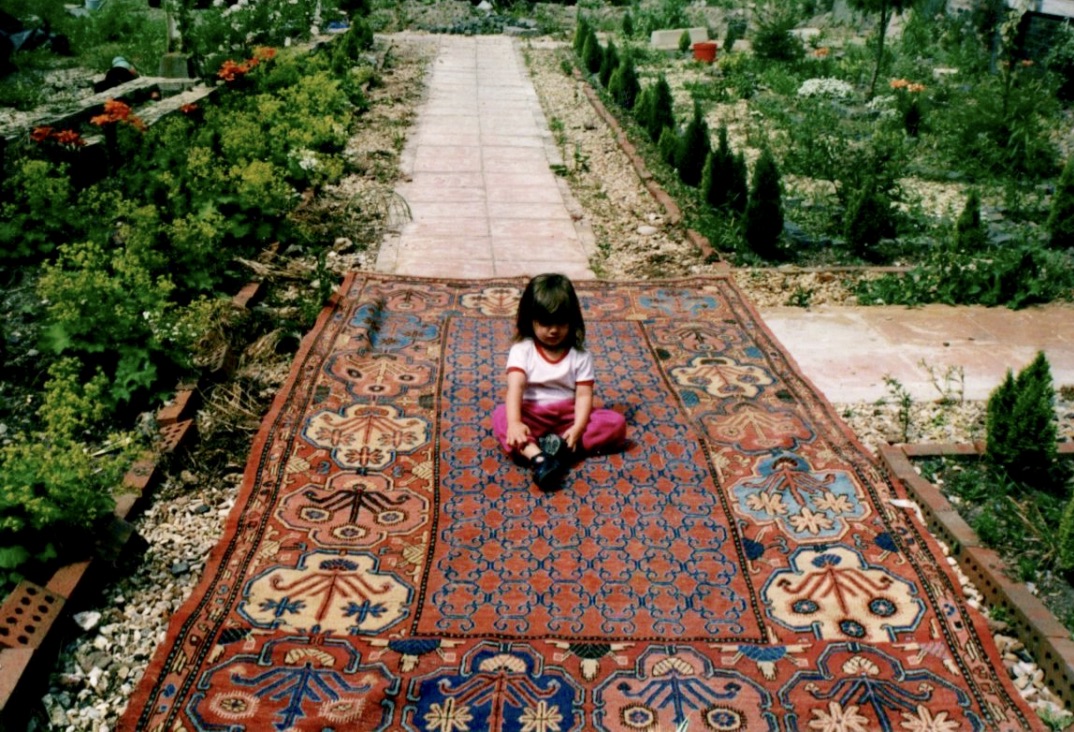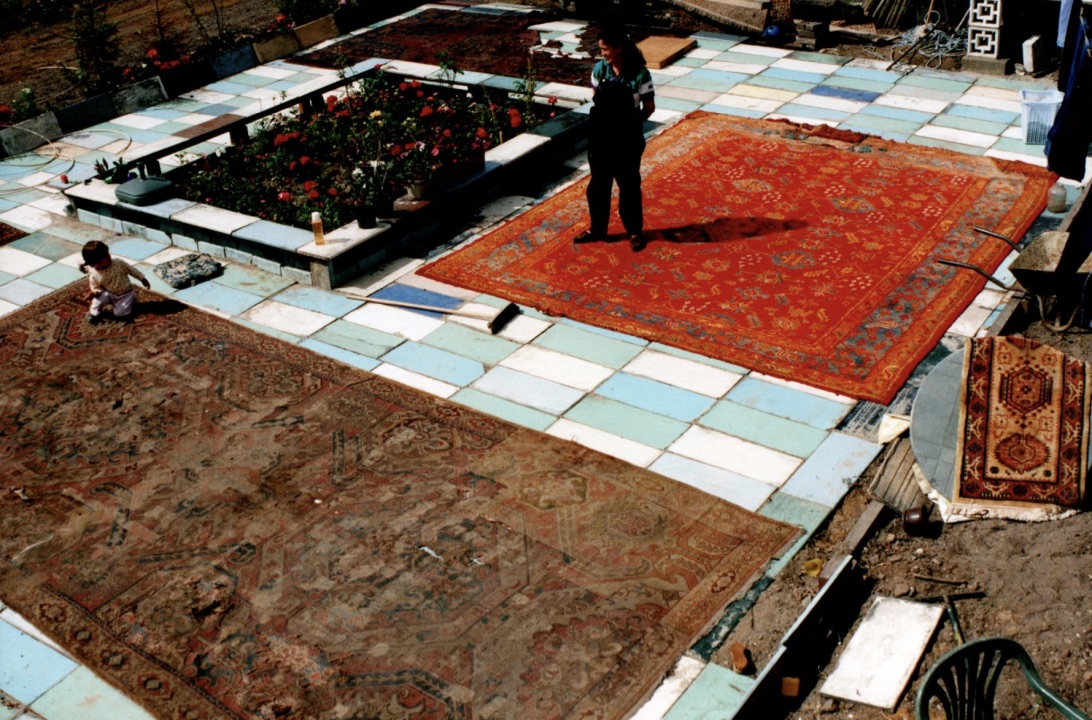Bahram Javadi-Babreh’s journey into the world of rugs began at the tender age of four in a weaving factory in Marand, northwest Iran. In 1978, he emigrated to England to study engineering. However, it wasn’t long before he discovered the country’s appreciation for oriental rugs. This realization prompted him to leave university and return to his true passion—rugs. Starting out as a repairer, Bahram’s dedication and skill eventually led him to establish his own business, specializing in the restoration and sales of antique rugs, as well as designing and weaving his own creations.

Bahram repairing a rug (1995)
Thames Carpets was founded in 1956 by Joseph Benardout and became a significant part of Bahram’s story. The Benardout family frequently collaborated with Bahram and when Joseph’s sons retired in 2001, Bahram took over the business. In the beginning, Bahram ran the business with his wife and today, he runs the company alongside his daughter, Sophie Javadi-Babreh.
“I grew up in the rug shop. My school holidays were spent climbing over piles of rugs with my little brother or traveling around the country to view rugs at auction houses”, Sophie recalls.

Sophie and her mother in a rug shop, (2002)
For Sophie, rugs were an indestructible playground filled with fun patterns and colors, during her childhood. They were a constant presence in her life—her family lived, ate, danced, and sometimes slept on them. More than anything, they were part of the family. “As I grew up, I realized my deep connection with them. I understood that they were more than just decoration; they carried our stories and energy”, Sophie says. She began to appreciate their cultural significance, particularly from her Iranian heritage, and the importance of preserving it.
At the age of seventeen, Sophie left school and joined the family business, determined to nurture and evolve the ancient art form of rugs. Her father, Bahram, having dedicated his life to rugs, naturally became her mentor. As Sophie tells us herself, her fathers lifetime of expertise is one of the business’s biggest strengths, and his discipline and dedication inspire Sophie every day. On the other hand, Sophie brings fresh and ambitious energy to the business, aiming to help rugs gain recognition from the next generation. Together, their shared passion and open-mindedness provide the backbone of their business.

Sophie on a very special antique Khotan rug, (1999)
Furthermore, Sophie shares what they believe is important during the process of creating a handmade rug. According to her, the quality of the materials is paramount. Many manufacturers often overlook the importance of using high-quality materials for every aspect of the rug, including the foundation (warp and weft), the pile and the dyes. “Each element plays an equal role in the overall finished product”, Sophie explains. She also underscores the importance of how sustainability and ethical factors are crucial.

Sophie and her mother
Today, the rug industry is encountering a strange period, as the market is flooded with fast fashion rugs that are practically disposable and damaging on environmental, economic, and aesthetic fronts. The lack of information available, often leads people to believe that there are no affordable alternatives. While breaking this misconception can be challenging, things are changing. As Sophie says herself, “Social media has shown us that many people appreciate quality. Rugs are making a comeback!”
Photography Nilu Zargham


